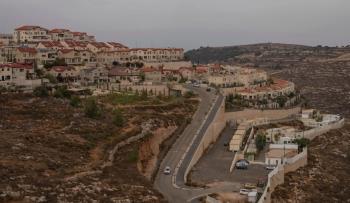Alwaght- The Committee on Arms Exports Control in British parliament called on their government to stop selling weapons to Saudi Arabia over war crimes.
The committee, responsible for examining foreign weapon sales, is a group of 16 parliament members from four parties. The group asked UK government to halt the sales until the war crime charges against Riyadh are fully investigated.
International Organizations and human rights groups accuse Saudi Arabia of war crimes and indiscriminative bombardment of Yemeni people. In a famous incident the humanitarian aid group, Doctors Without Borders, evacuated its staff from six hospitals in northern Yemen after Saudi warplanes targeted their hospitals around the country.
The group blamed the Saudi military for the decision, calling its bombing “indiscriminate” and its assurances of protection for health workers “unreliable,” citing the aerial bombardment of Abs Hospital in Hajjah Province, which killed 19 people and wounded 24.
Saudi Arabia is also under fire for violating human rights and committing crimes when its forces entered the neighboring Bahrain for a crackdown on pro-democracy demonstrations in 2011.
Most weapons used in these aggressions were provided by either UK or the US, the two biggest arm suppliers to the kingdom.
In fact, Saudi Arabia have access to twice as many British-made warplanes as the British air force does, while bombs originally stockpiled by Britain's Armed Forces are being sent to Saudi Arabia for use in their bombing campaign in Yemen.
UK currently is the second biggest arm dealer in the world and Saudi Arabia is one of its main customers. The two countries finalized £3.3 billion of arms exports to Riyadh in the first year of the Saudi bombardment of Yemen, which includes £2.2bn worth of so-called ML10 licenses – equipment like drones, helicopters, and other aircraft.
Former UK Prime Minister, David Cameron had licensed £5.6bn in sales of arms, fighter jets and other military hardware to Saudi Arabia since he first came to the office.
Both the European Parliament and the House of Commons International Development Committee have already called for exports to the autocracy to stop, but the British Government says it has not seen evidence of Saudi war crimes.
On another front a bipartisan group of 60 lawmakers in US Congress signed a letter seeking to delay the Obama administration’s planned sale of $1.15 billion in arms and military equipment to Riyadh.
The letter, addressed to President Barack Obama, cites the growing number of civilian casualties in Yemen caused by the Saudi-led military coalition and the Obama administration’s failure to rein in its Arab ally.
The proposed sale, approved by the State Department in August includes up to 153 tanks, ammunition, hundreds of machine guns, and sundry other military equipment.
Washington has been an active arms supplier to the Saudi Kingdom with one of the biggest deals signed in 2010 when US agreed to sell 84 new Boeing F-15 aircraft and 70 upgrades of existing Saudi F-15s for total worth of $60 billion.
The arms and ammunitions provided by these two main suppliers have been used in indiscriminative Saudi bombardments on Yemeni people which has claimed the lives of over 10000 people, half of them civilians, and has displaced 3 million others internally.
Amnesty International reported earlier this year that at least 83% of Yemenis today rely on some form of humanitarian assistance in order to survive.
Referring to the aerial and naval blockade on areas under Ansarullah control, imposed by Saudi forces to cut off supplies, the report adds "this is severely limiting the import and provision of fuel and other essentials, obstructing access to food, water, humanitarian assistance and medical supplies and causing food prices to soar, creating a desperate situation for millions of people".
Damage to key logistical infrastructure, including bridges, airports and seaports, has also severely hampered the movement of crucial humanitarian supplies.
Although the arms supplied by UK and US continue to devastate the lives of women and children in Yemen, there seems to be no signs of halting or even slowing down of the weapon flow to the Kingdom as British Prime Minister, Theresa May has rejected the call by MPs and defended its weapon deals with Saudis as "the way to keep people on the streets of Britain safe".
In response to the call by the UK Parliament Committee to halt the arm deals, she said "“Actually, what matters is the strength of our relationship with Saudi Arabia. It is that relationship that has helped to keep people on the streets of Britain safe.”



























